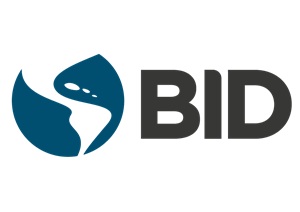 AcademiaBID | Cursos online | Amplía tus habilidades y conocimiento con todos nuestros recursos de aprendizaje
AcademiaBID | Cursos online | Amplía tus habilidades y conocimiento con todos nuestros recursos de aprendizaje
Educación Superior
Ocular toxicology is an essential field that focuses on understanding how various substances can affect the health of the eyes and vision. With the growing number of chemicals used in industries ranging from pharmaceuticals to cosmetics, the need for specialized ocular toxicology services has never been more critical. These services play a pivotal role in assessing the safety and efficacy of products before they reach consumers, ensuring that vision remains protected against potential harmful effects.
Understanding Ocular Toxicology
Ocular toxicology examines the impact of chemical compounds on the eyes. This includes direct injuries to ocular tissues, chronic damage that may develop over time, and systemic effects that may influence vision. Researchers in this field investigate a wide array of substances, including drugs, industrial chemicals, and environmental pollutants. The goal is to identify risks and understand mechanisms of action, which is vital for developing safer products and regulations.
The Importance of Ocular Toxicology Services
Product Testing and Safety: Manufacturers of cosmetic products, pharmaceuticals, and medical devices are required to conduct ocular toxicity assessments to ensure their offerings do not harm users. Ocular toxicology services provide the necessary testing to evaluate potential risks, leading to the development of safer formulations.
Regulatory Compliance: Robust ocular toxicology testing can help companies comply with regulatory standards set by agencies such as the FDA and EPA. Adhering to these guidelines is critical for market approval and to avoid legal repercussions.
Research and Development: Ocular toxicology services support the R&D phase of new products by providing insights into the safety profiles of novel ingredients. This helps in the formulation of products that minimize ocular risks while maximizing therapeutic benefits.
Risk Assessment and Management: Ocular toxicology specialists conduct risk assessments that identify and mitigate potential dangers associated with exposure to harmful substances. This proactive approach is essential to protect public health and prevent adverse effects from chemical exposure.
Educational Workshops and Resources: Many ocular toxicology service providers offer training and resources for professionals in industries that deal with chemical formulations. This education is vital for fostering a culture of safety and awareness regarding ocular health.
Testing Methods in Ocular Toxicology
Ocular toxicology employs various testing methods to evaluate the effects of substances on eye health:
In Vitro Testing: This laboratory technique involves the use of cell cultures to assess how substances affect ocular tissues at a cellular level. It allows for high-throughput screening and offers preliminary data on toxicity.
In Vivo Studies: Animal models are often used to investigate the effects of substances on the whole organism, providing insights into systemic effects and potential long-term consequences.
Clinical Trials: For new pharmaceuticals or medical devices, carefully monitored clinical trials assess safety and efficacy in human subjects, which is crucial for regulatory approval.
Conclusion
Ocular toxicology services are instrumental in safeguarding vision against the potential hazards of chemical exposure. By ensuring that products meet rigorous safety standards, these services protect consumers and promote public health. As research progresses and new substances emerge, the role of ocular toxicology will continue to expand, highlighting the ongoing need for vigilance in ocular safety. Investing in these services is an investment in a safer, clearer future for vision health.

